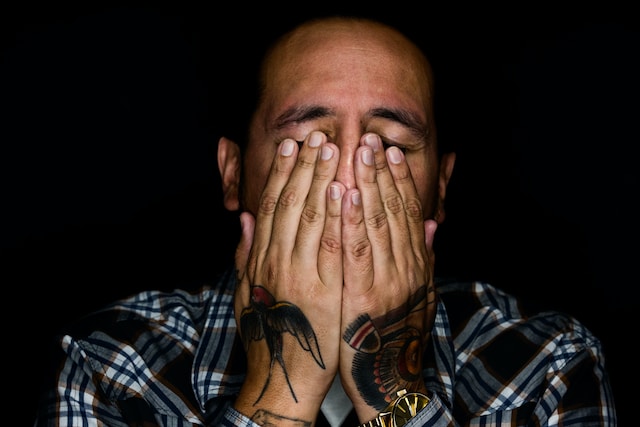Are you struggling with intimate moments? Don’t let erectile dysfunction hold you back any longer.
This article covers everything you need to know about the symptoms, causes, diagnosis, treatment, prevention, and proven home remedies of this common condition. From understanding the warning signs to exploring effective remedies, we’ve got you covered.

Don’t hesitate to seek help and regain your confidence. Take charge of your health and find the solutions you need for a fulfilling and satisfying life.
Key Takeaways
- Erectile dysfunction can be caused by both physical and psychological factors, including conditions like diabetes, high blood pressure, obesity, stress, anxiety, and depression.
- It is important to seek accurate diagnosis and appropriate treatment for erectile dysfunction, as misdiagnosis can lead to unnecessary worry and delay in receiving care.
- Treatment options for erectile dysfunction include lifestyle changes, medication, surgical options, and therapy or counseling, depending on the underlying cause and individual preferences.
- Preventive measures for erectile dysfunction include maintaining a healthy weight, quitting smoking, limiting alcohol consumption, practicing safe sex, and adopting a healthy lifestyle overall.
Erectile Dysfunction Symptoms
You should pay attention to the symptoms and consult a doctor if you experience any erectile dysfunction. Erectile dysfunction, also known as impotence, is the inability to get or maintain an erection firm enough for sexual intercourse. It can be caused by a variety of factors, both physical and psychological.
Physical causes of erectile dysfunction include conditions such as diabetes, high blood pressure, heart disease, obesity, and certain medications. Psychological factors can also play a significant role in erectile dysfunction, such as stress, anxiety, depression, relationship problems, and performance anxiety. It’s important to note that occasional difficulties with erections are common and may not necessarily indicate a serious problem.
However, if you consistently experience issues with achieving or maintaining an erection, it’s recommended to consult a healthcare professional. They can help determine the underlying cause and recommend appropriate treatment options. Understanding the causes of erectile dysfunction is crucial in order to address the issue effectively and improve your sexual health.
Transitioning into the next section on causes, let’s explore the various factors that can contribute to erectile dysfunction.
Erectile Dysfunction Causes
Understanding the causes of erectile dysfunction is crucial in order to address the issue effectively and improve your sexual health. Erectile dysfunction is the inability to achieve or maintain an erection firm enough for sexual intercourse. While it’s a common condition that can affect men of all ages, it’s important to identify the underlying factors that contribute to this condition.

Psychological factors can play a significant role in causing erectile dysfunction. Stress, anxiety, depression, and relationship problems can all contribute to the inability to achieve or sustain an erection. It’s important to address these psychological issues through therapy or counseling in order to improve sexual function.
Furthermore, lifestyle choices can also impact erectile function. Smoking, excessive alcohol consumption, and drug use can all contribute to erectile dysfunction. These habits can damage blood vessels and restrict blood flow to the penis, making it difficult to achieve an erection. Maintaining a healthy lifestyle by exercising regularly, eating a balanced diet, and avoiding harmful substances can help improve erectile function.
Erectile Dysfunction – Diagnosis
If you suspect that you may have erectile dysfunction, it’s important to consult a healthcare professional for an accurate diagnosis. While it can be a sensitive topic to discuss, seeking medical help is crucial to understand the underlying causes of your symptoms and receive appropriate treatment. Misdiagnosis of erectile dysfunction can lead to unnecessary worry, frustration, and delay in receiving the care you need.
Here are three important points to consider when it comes to the diagnosis of erectile dysfunction:
- Medical history: Your healthcare provider will ask you detailed questions about your symptoms, medical history, and lifestyle factors that could contribute to erectile dysfunction. It’s essential to provide honest and accurate information to ensure a thorough evaluation.
- Physical examination: A physical examination may be conducted to check for any physical abnormalities or signs of underlying health conditions that could be causing erectile dysfunction. This may include checking your blood pressure, examining your genitals, and assessing your overall health.
- Diagnostic tests: In some cases, your healthcare provider may recommend additional diagnostic tests to determine the cause of your erectile dysfunction. These tests may include blood tests to check hormone levels, ultrasound to assess blood flow to the penis, or other specialized tests to identify any underlying medical conditions.
Treatment of Erectile Dysfunction
For effective treatment of erectile dysfunction, it is important to consult with a healthcare professional and consider both medical and lifestyle interventions. There are various treatment options available, including surgical options and medication alternatives.
Surgical options may be considered when other treatments have failed or are not suitable for an individual’s specific situation. These procedures aim to improve blood flow to the penis or repair any anatomical abnormalities that may be causing the erectile dysfunction.

On the other hand, medication alternatives can also be effective in managing erectile dysfunction. Medications such as phosphodiesterase-5 (PDE5) inhibitors, like Viagra and Cialis, are commonly prescribed and work by increasing blood flow to the penis. These medications are usually taken orally and have shown positive results in many cases.
To help you understand the different treatment options available, here is a table summarizing the surgical options and medication alternatives for erectile dysfunction:
| Surgical Options | Medication Alternatives |
|---|---|
| Penile Implants | PDE5 Inhibitors |
| Vascular Surgery | Testosterone Therapy |
| Alprostadil Injections |
It is important to note that the choice of treatment will depend on various factors, including the underlying cause of the erectile dysfunction, the individual’s overall health, and personal preferences. Therefore, it is crucial to consult with a healthcare professional to determine the most suitable treatment approach for you.
Prevention of Erectile Dysfunction
You can effectively prevent erectile dysfunction by adopting a healthy lifestyle and practicing safe sex.

Here are three important lifestyle changes you can make to reduce your risk of developing erectile dysfunction:
- Maintain a healthy weight: Obesity is a risk factor for erectile dysfunction. By achieving and maintaining a healthy weight, you can decrease your chances of experiencing this condition. Focus on consuming a balanced diet that’s rich in fruits, vegetables, whole grains, and lean proteins. Regular exercise is also crucial for maintaining a healthy weight.
- Quit smoking: Smoking damages blood vessels and reduces blood flow throughout the body, including to the penis. Quitting smoking can greatly improve your overall vascular health and reduce the risk of erectile dysfunction.
- Limit alcohol consumption: Excessive alcohol intake can disrupt the hormonal balance in the body and lead to erectile dysfunction. It’s important to drink alcohol in moderation and avoid excessive drinking.
By adopting these lifestyle changes, you can significantly reduce your risk of developing erectile dysfunction.
However, if you do experience symptoms of erectile dysfunction, there are also home remedies that may help improve your condition.
Erectile Dysfunction Home Remedies
Try incorporating natural home remedies into your routine to potentially alleviate symptoms of erectile dysfunction. While there are various medical treatments available for erectile dysfunction, many individuals prefer exploring natural remedies and lifestyle changes as a first step.

These remedies aim to improve overall health and address underlying factors that may contribute to erectile dysfunction. It is important to note, however, that natural remedies may not work for everyone, and consulting with a healthcare professional is recommended before making any significant changes to your routine.
Here are some natural remedies and lifestyle changes that may help alleviate symptoms of erectile dysfunction:
| Remedies | Lifestyle Changes | Other Tips |
|---|---|---|
| – Panax ginseng | – Regular exercise | – Communication and support from partner |
| – Rhodiola Rosea | – Healthy diet | – Seeking professional help if necessary |
| – DHEA | – Adequate sleep | – Patience and understanding |
| – L-arginine | – Stress management | – Maintain a healthy weight |
| – Limiting alcohol consumption | – Consider counseling or therapy | |
| – Quitting smoking |
It’s important to remember that natural remedies may take time to show results, and consistency is key. Additionally, it’s crucial to address any underlying medical conditions that may be contributing to erectile dysfunction. Ultimately, finding the right combination of natural remedies and lifestyle changes that work for you may help improve symptoms and overall sexual health.
When to Visit A Doctor with erectile dysfunction
When should you consult a doctor if you have this disease? It’s important to seek medical help for erectile dysfunction (ED) if you experience persistent difficulties in achieving or maintaining an erection. Here are three reasons why consulting a healthcare professional is crucial:
- Underlying health conditions: Erectile dysfunction can be a symptom of an underlying health condition such as heart disease, diabetes, or high blood pressure. These conditions require medical attention to ensure proper diagnosis and treatment.
- Emotional and psychological well-being: ED can have a significant impact on your emotional and psychological well-being, leading to feelings of frustration, anxiety, and low self-esteem. A doctor can provide support, and guidance, and recommend appropriate therapies to address these concerns.
- Treatment options: Consulting a healthcare professional allows you to explore various treatment options available for ED. They can prescribe medications, recommend lifestyle changes, or suggest other interventions that are tailored to your specific needs.
Frequently Asked Questions
Is Erectile Dysfunction a Normal Part of Aging?
Erectile Dysfunction is not a normal part of aging, but it can be preventable. Lifestyle choices like exercise, a healthy diet, and avoiding smoking and excessive alcohol can reduce the risk.
Can Stress or Anxiety Cause Erectile Dysfunction?
Yes, stress or anxiety can cause erectile dysfunction. When you feel stressed or anxious, your body releases stress hormones that can interfere with the ability to get or maintain an erection.
Are There Any Natural Supplements or Herbs That Can Help With Erectile Dysfunction?
Yes, there are natural supplements and herbs that may help with erectile dysfunction. It’s important to consult with a healthcare professional to ensure safety and effectiveness before trying any alternative treatments or natural remedies.
Can Certain Medications or Medical Conditions Contribute to Erectile Dysfunction?
Certain medications and medical conditions can contribute to erectile dysfunction. It’s important to consult with a healthcare professional to understand the potential effects of your specific medication or condition.
What Are the Psychological Factors That Can Contribute to Erectile Dysfunction?
Psychological factors like stress, anxiety, depression, and relationship problems can contribute to erectile dysfunction. Seeking psychological therapy can help address these issues and improve your overall sexual health.
Conclusion
Erectile dysfunction is a common condition that can have various causes including physical, psychological, and lifestyle factors. It’s important to seek medical assistance if experiencing persistent symptoms.
Interestingly, studies have shown that approximately 52% of men between the ages of 40 and 70 experience some degree of erectile dysfunction.
By understanding the symptoms, causes, and available treatments, individuals can take proactive steps to manage and prevent this condition.
